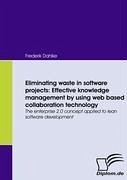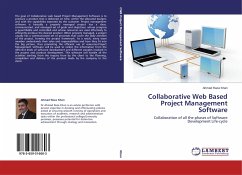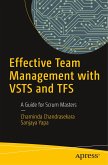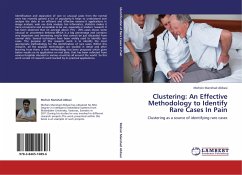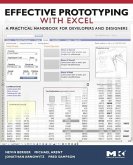Knowledge management is controlling the transfer, distribution, and availability of knowledge. Traditionally, knowledge management processes are predefined; e.g. it is laid out in detail which document template, data structure, system, or work flow steps have to be used in order to manage knowledge. But knowledge management itself is complex. It is simply not possible to predefine the typical flow of work in knowledge intensive processes in advance. So rather than trying to determine the procedures it is more promising to analyze which factors can be used in order to control the outcome of the knowledge management process. By respecting the lean knowledge management principles, developed and first presented within this book, any manager can control the success of knowledge management in a lean software project any time. Enterprise 2.0 and Web 2.0 technologies perfectly support the lean knowledge management principles, and far better than any traditional approach, based on text processors, presentation software, spreadsheets, and E-Mail can do. Together, the lean knowledge management principles and Enterprise 2.0 form a new approach to knowledge management, which delivers value that can not be reached otherwise.
Hinweis: Dieser Artikel kann nur an eine deutsche Lieferadresse ausgeliefert werden.
Hinweis: Dieser Artikel kann nur an eine deutsche Lieferadresse ausgeliefert werden.

